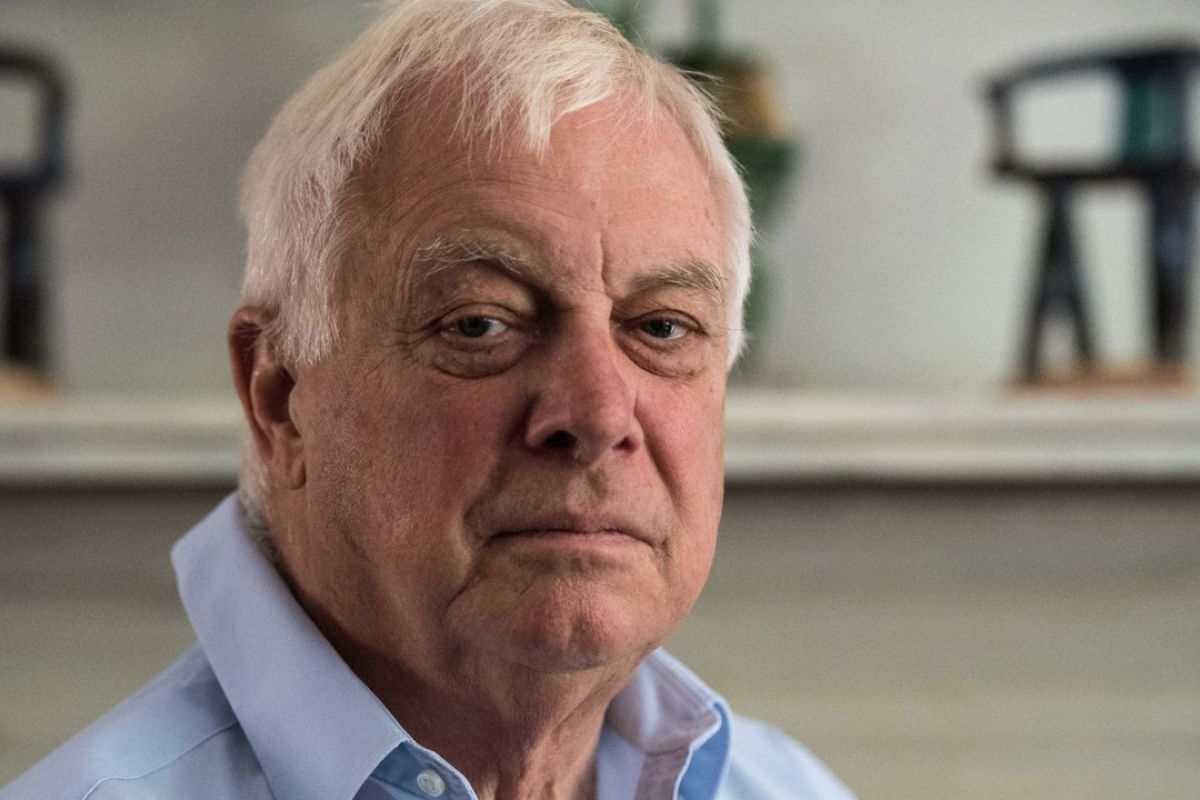Who is Lord Chris Patten?

A few minutes every morning is all you need.
Stay up to date on the world's Headlines and Human Stories. It's fun, it's factual, it's fluff-free.
British politician Christopher Francis Patten was the 28th and last governor of Hong Kong and is known for his strong advocacy of Hong Kong’s sovereignty and his fervent criticism of the violations of the Sino-British Joint Declaration.
Anti-government protests that started in June 2019 thrust Hong Kong into the headlines. In response to the social unrest, Beijing introduced a national security law on June 30 of this year. More recently, the city delayed elections.
As the last governor of Hong Kong, Patten has been an outspoken advocate for the city’s independence. In reference to the enactment of the national security law, Patten stated, “This decision, which rides rough-shod over Hong Kong’s elected legislature, marks the end of one-country, two-systems. It is a flagrant breach of the Sino-British Joint Declaration – a treaty lodged at the United Nations – and Hong Kong’s mini constitution, the Basic Law.”
Early life
Lord Patten was born on May 12, 1944 and lived with his family in Greenford, a suburb in the London borough of Ealing. Patten’s father was a music publisher who dropped out of school to start a career as a jazz drummer while his mother reportedly had no interest in politics.
Patten was awarded a scholarship that led him to St Benedict’s School in Ealing. He then attended Balliol College, Oxford, where he studied history.
Following his graduation from Oxford, Patten went to work in the Conservative Research Department. Not long after, at the age of 30, he was appointed the department’s head – the youngest person ever to hold the position.
The road to Hong Kong
Patten’s political career began in the Conservative Party’s research department in 1979 under the Thatcher government. In 1985, Patten was appointed as education minister. During this time, he was also the minister of overseas development at the Foreign and Commonwealth Office, which included overseeing the affairs of Hong Kong – still a British colony at the time.
Lord Patten played a key role in leading the 1992 election campaign as the chairman of the Conservative Party. Although he helped Conservatives win the election, Patten lost his own parliamentary seat in Bath. However, having developed a friendship with Thatcher’s successor, John Major, Lord Patten was offered the post as Hong Kong’s 28th and final governor, which he took.
The last imperialist
On July 9, 1992, Lord Patten took up his post as Hong Kong’s governor. Four months later, he introduced reforms that included lowering the minimum voting age from 21 to 18 and removed restrictions that had previously kept Hong Kongers from running for election to China’s National People’s Congress.
This change garnered immediate disapproval from the Chinese government, which was not consulted prior to the announcement of the reforms. China declared its intention to overturn Patten’s reforms once Hong Kong was returned to its control.
On February 24, 1994, the first bill was approved that put the first four reforms into effect. On June 30, 1994, another bill was approved that enacted the final three proposed reforms. The first election for Hong Kong’s Legislative council was held in September 1995.
Although Patten’s reforms were generally viewed positively by the pro-democracy parties and the general public in Hong Kong, Lord Patten’s arguments about civil liberties, the rule of law and democracy in Hong Kong were and continue to be controversial.
This controversy earned Patten the title of “Sinner of a Thousand Years" from Chinese officials such as Lu Ping, Beijing’s then-director of the Hong Kong and Macau Affairs Office (HKMAO). Ping also called Patten a “liar," a “snake" and a “prostitute.”
Post governorship
Lord Patten moved on to chair the Independent Commission on Policing for Northern Ireland, established as a part of the Belfast Agreement, for a year. Under his management, the commission produced a report entitled “A New Beginning: Policing in Northern Ireland.”
This report contained detailed, practical recommendations with the aim of establishing a police service that was effective, productive and answerable to the law and the community it served.
In 1999, Patten became the European Commissioner for External Relations where he oversaw development and cooperation programs until 2004. In 2003, Patten also became the chancellor of the University of Oxford and, from 2011 to 2014, the Chairman of the BBC Trust.
The evolution of Hong Kong’s political system
During an interview with The Daily Telegraph of London, Patten said that China’s “attack on the judiciary and the rule of law, the implied attack of academic independence, free press and the abductions were deeply worrying.”
The ex-governor has defended the rights of Hong Kongers by accusing China of leading “an outrageous political purge” in Hong Kong. This was in response to the disqualification of 12 candidates from running in the upcoming Hong Kong election as a result of the 2020 National Security Law. In his statement, Patten accused China of “us[ing the National Security Law] to disenfranchise the majority of Hong Kong’s citizens,” and “making it illegal to believe in democracy.”
A spokesperson for China’s foreign ministry responded to Patten’s comments by accusing him of meddling in local affairs and said that, as a result, Patten would be “condemned to everlasting infamy.”
Have a tip or story? Get in touch with our reporters at tips@themilsource.com




Comments ()